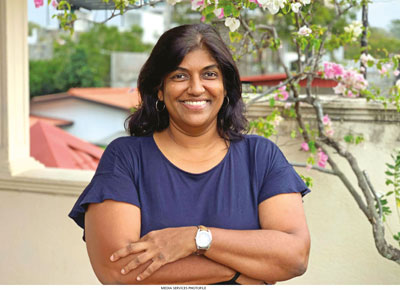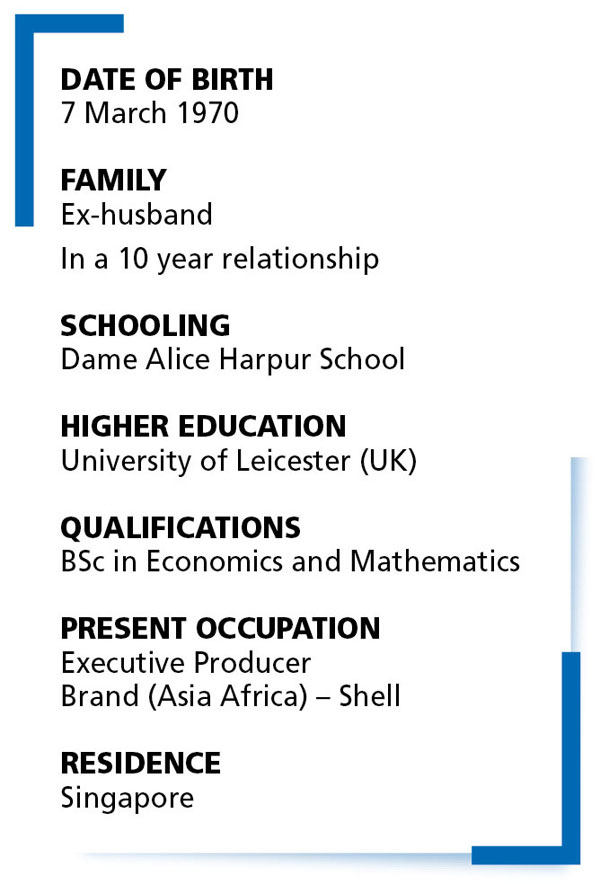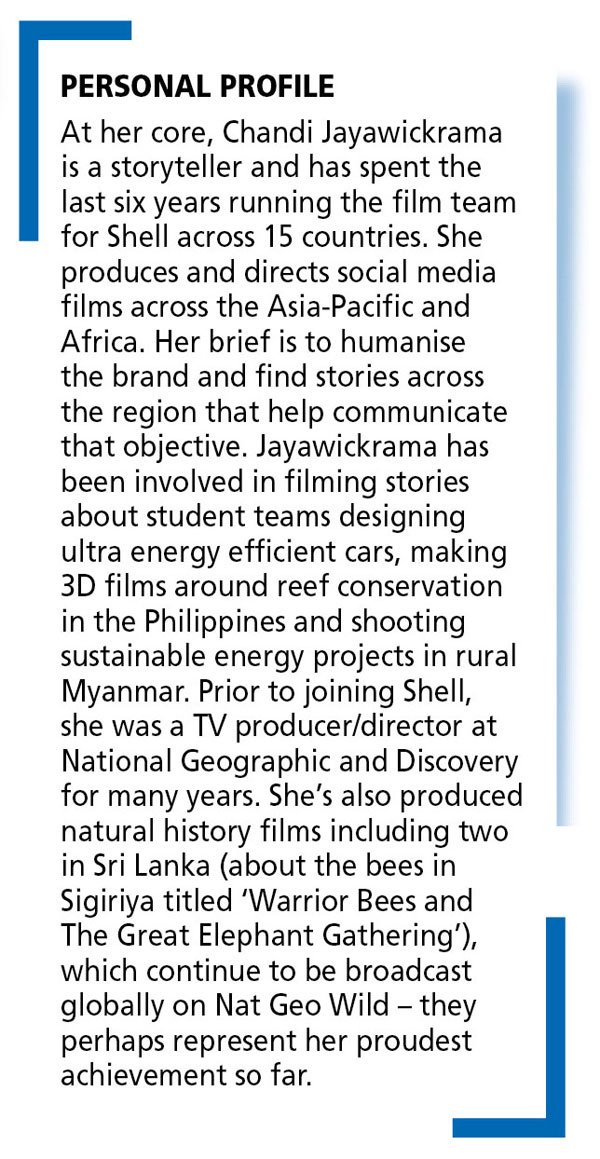SRI LANKANS OVERSEAS
THE DECENCY DEFICIT
Chandi Jayawickrama is dismayed by the dark post-4/21 milieu
Q: How do you perceive Sri Lanka today?
A: It’s a very different answer to the one I would have given a few months ago. After the Easter Sunday attacks, Sri Lanka seems vulnerable and the lack of decent leadership is even more apparent.
Following the mosque attacks in New Zealand in March, Prime Minister Jacinda Ardern demonstrated exceptional and inspirational leadership. Somehow, Sri Lanka has managed to achieve quite the opposite!
I’ve also been disappointed and surprised by the volume of anti-Muslim attacks, both verbal and physical, from all levels of society. We seem unable to learn as a country, which truly baffles me.

Q: So how do compatriots in your country of domicile view Sri Lanka?
A: Before the Easter Sunday attacks, most Singaporeans believed that Sri Lanka was a beautiful holiday destination and/or where their domestic workers come from. Any Singaporean who actually knows Sri Lankans has a different opinion; they see our drive, intelligence and abilities, front and centre.
Over the decades, Sri Lankans have done amazingly well in Singapore (and the rest of the world) including the hardworking maids who’ve sacrificed so much for their families and bring in considerable foreign currency.
Q: What were your impressions of Sri Lanka on your last visit and how much has it changed from the past?
A: I was in Colombo with my partner when the Easter bombings occurred. It felt as though we were being dragged back by the scruff into the 1990s and the era when the Tigers regularly bombed Colombo.
This time however, it felt more bewildering and shocking. We had taken peace for granted and it was suddenly shattered. Like so many other Sri Lankans, I felt utterly devastated about the country.

Q: From afar, how do you perceive news about Sri Lanka?
A: I love this country with a passion so I’m often disappointed with what I hear. I was so proud when Sri Lanka became Lonely Planet’s number one destination for 2019 – ironically on the very day of the constitutional crisis last year.
Q: How do you view the brain drain and why is there no reversal of it, in your opinion?
A: If we aren’t careful, we’ll now lose our successful hardworking Muslim brothers and sisters to a new brain drain as well.
Before the Easter Sunday attacks, a Muslim friend told me that he was trying to figure out if this was a five or 25 year problem. He was referring to the rising anti-Islamic sentiment at the time. After the April bombs and ensuing racist attacks across the country, if I were Muslim, I’d be genuinely concerned for the safety of myself and my family.
I don’t believe that we are all equal in Sri Lanka; some are more equal than others. That is a tragedy and fundamental flaw in this country.
Q: As far as perceptions go, is Sri Lanka regaining its composure in the aftermath of the Easter Sunday attacks?
A: A good start has been the lifting of travel restrictions by some countries. This will play a part in resuscitating the tourism industry. But there’s a long way to go.

Q: What should Sri Lanka focus on most in the coming decade?
A: English is the simple answer. Our people need to be fluent in English – both written and spoken. It’s the only way children will be locally and globally competitive. And it creates a much needed level playing field across Sri Lanka. The inequality of opportunities is too great at present.
I would also scrap the segregation of children based on religion. How can we become ‘One Sri Lanka’ if we’re divided and differentiated from such a young age?
Moreover, I wish more young people and especially women would join politics – and overhaul and rejuvenate the current system. We’ve also got a few dynamic leaders in the corporate world, and I’d love to see more of them step up and change the face of leadership – and grow the economy as they’ve grown their organisations.
We should focus on the rule of law in all strata of society, from the bus drivers who drive like maniacs to politicians and priests of all denominations who act like hooligans. Sri Lanka has to become a meritocracy.
Q: And what are your hopes for the country in the next decade or so?
A: That Sri Lanka reaches the potential so many of us have always seen.

– LMD







Leave a comment